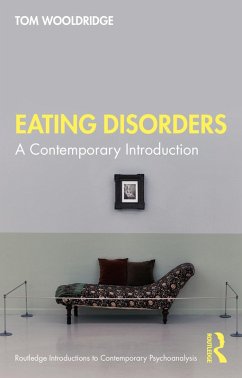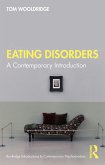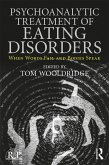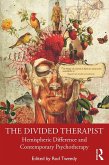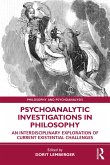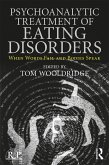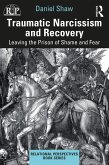Dieser Download kann aus rechtlichen Gründen nur mit Rechnungsadresse in A, B, BG, CY, CZ, D, DK, EW, E, FIN, F, GR, HR, H, IRL, I, LT, L, LR, M, NL, PL, P, R, S, SLO, SK ausgeliefert werden.
Alessandra Lemma, Fellow of British Psychoanalytic Society and Visiting Professor, Psychoanalysis Unit, University College London
"Tom Wooldridge has written a tightly argued, careful account of anorexia nervosa which moves in surprising and novel directions. He gives a careful review of the vision of the disorder as a form of self harm and self hatred (using Kristeva's ideas of abjection). He examines anorexia nervosa and its treatment through approaches that integrate the psychodynamic and the intersubjective. He writes a very novel chapter that reviews the complex role of gender, father-child relation and symptom patterns, widening our sense of family and parental involvements.
Most intriguingly, he gives a balanced account of what are called pro-ana groups, internet open sites which both guide, support and counsel people suffering from eating disorders. He is able to explore the dangers and potentials in such forums, allowing us to think of good care as both conventional and unconventional, personal and private but also social and open."
Adrienne Harris, Ph.D. Sandor Ferenczi Center and the New School for Social Research
"Individuals who struggle with eating disorders are considered to be among the most challenging patients to engage in psychotherapeutic and medical practice. For those who may still doubt that psychoanalysis and psychodynamic psychotherapy offer unique healing and lifesaving potential for these troubled souls, Wooldridge's superb new book is here to help shift that opinion. In each chapter and through illustrative clinical examples, one is immediately drawn to how psychoanalytic principles are humanely and creatively applied to relaunch psychological growth and development. Wooldridge's ability to synthesize key insights of the classic contributions of Hilde Bruch with current ego psychological, object relations, self-psychological, and relational perspectives and to constructively use them in practice is highly original, scholarly, and compassionate. The riveting snippets of dialogue between analyst and patient are equaled by the range of topics the author chooses to engage, including the role of fathers and play, the uses of the internet and technology, and the importance of sticking with the patient through expectable, often predicable, regressive episodes. Wooldridge's depth of knowledge of the fields of eating disorders and psychoanalysis provide an expansive and imminently hopeful point of view that I enthusiastically recommend for beginners and experienced clinicians alike whose scope of practice includes psychotherapeutic work with the entire range of eating disorder problems."
Kathryn J. Zerbe, MD, Training and Supervising Analyst, Oregon Psychoanalytic Institute

